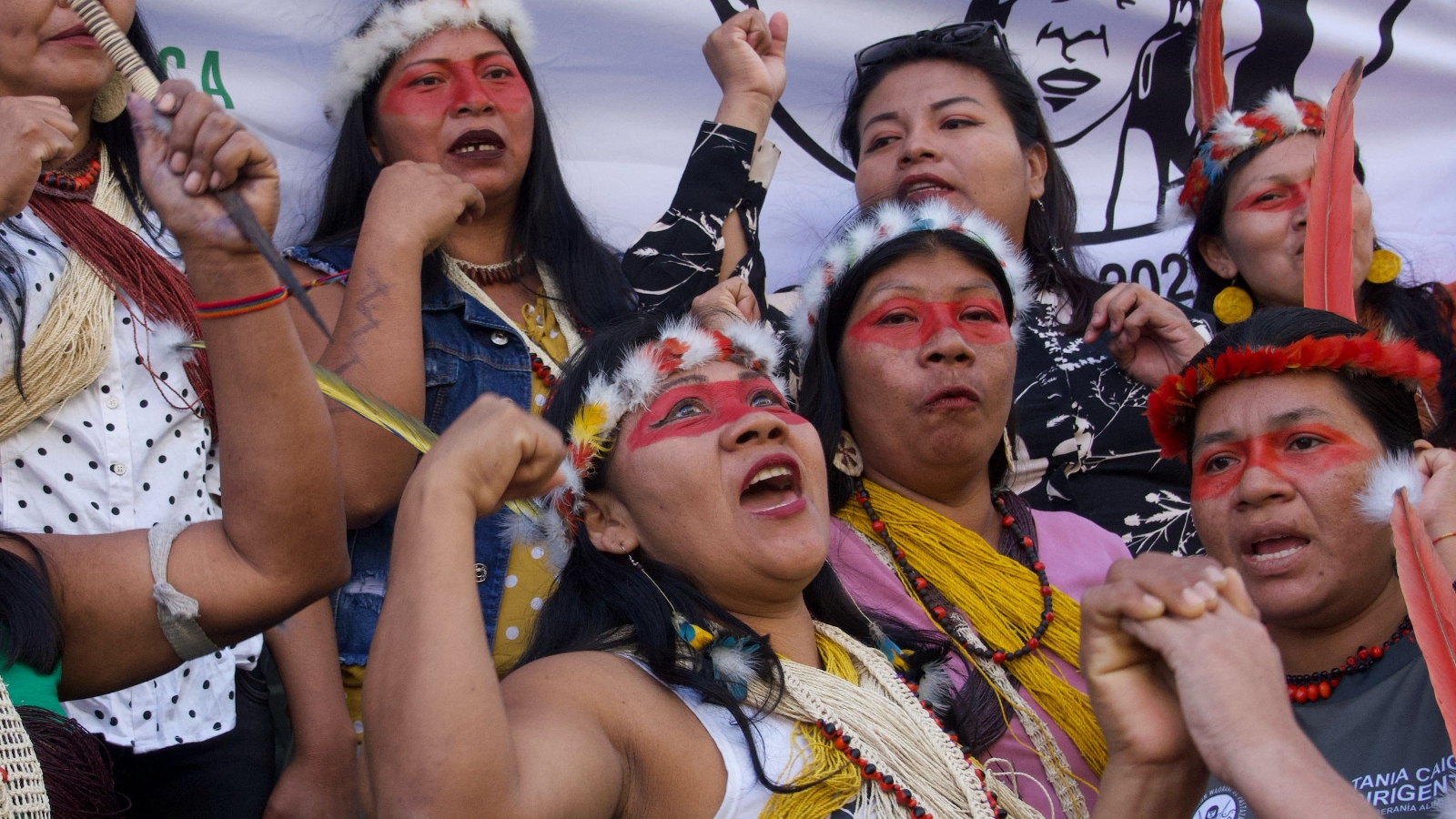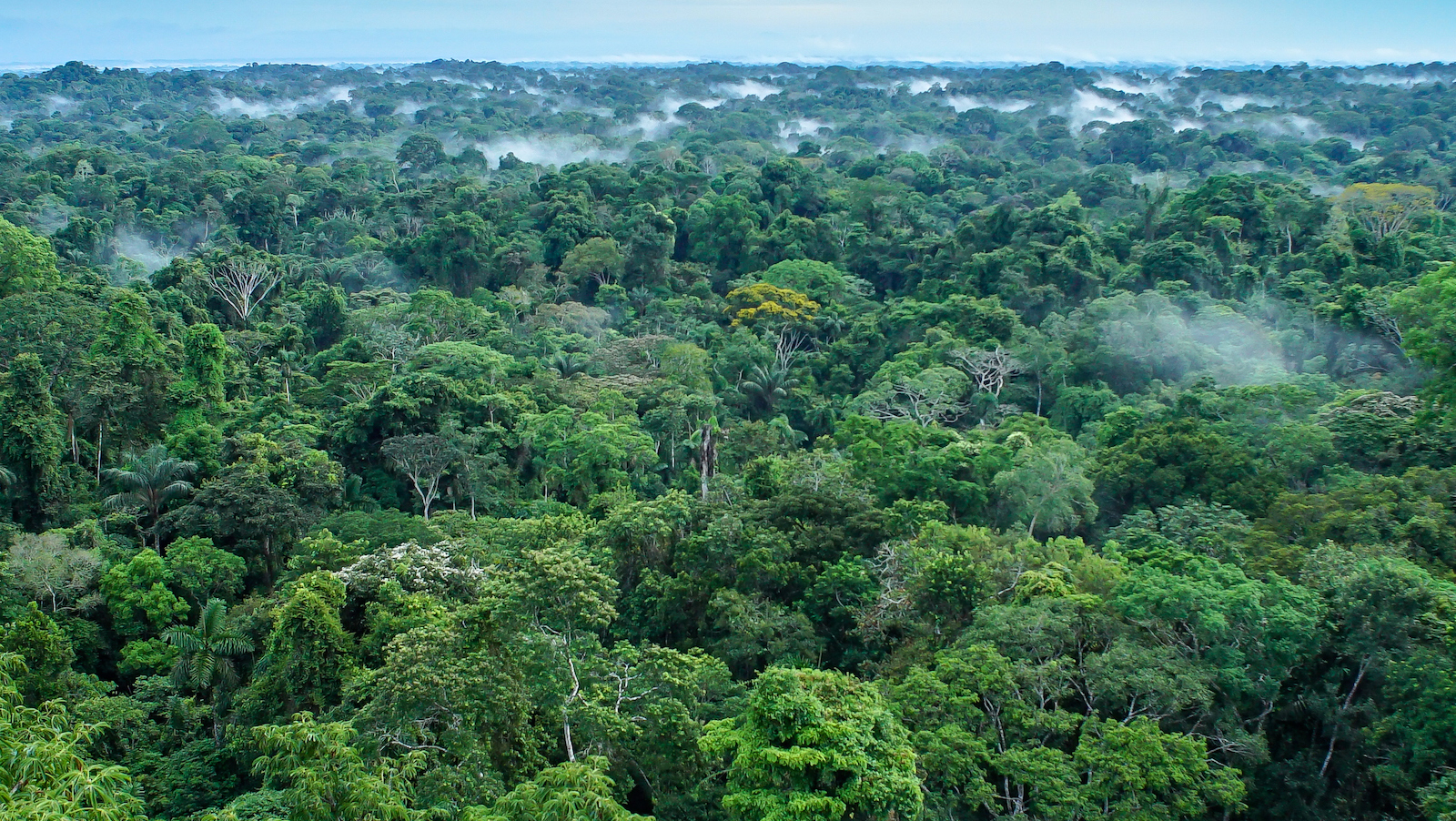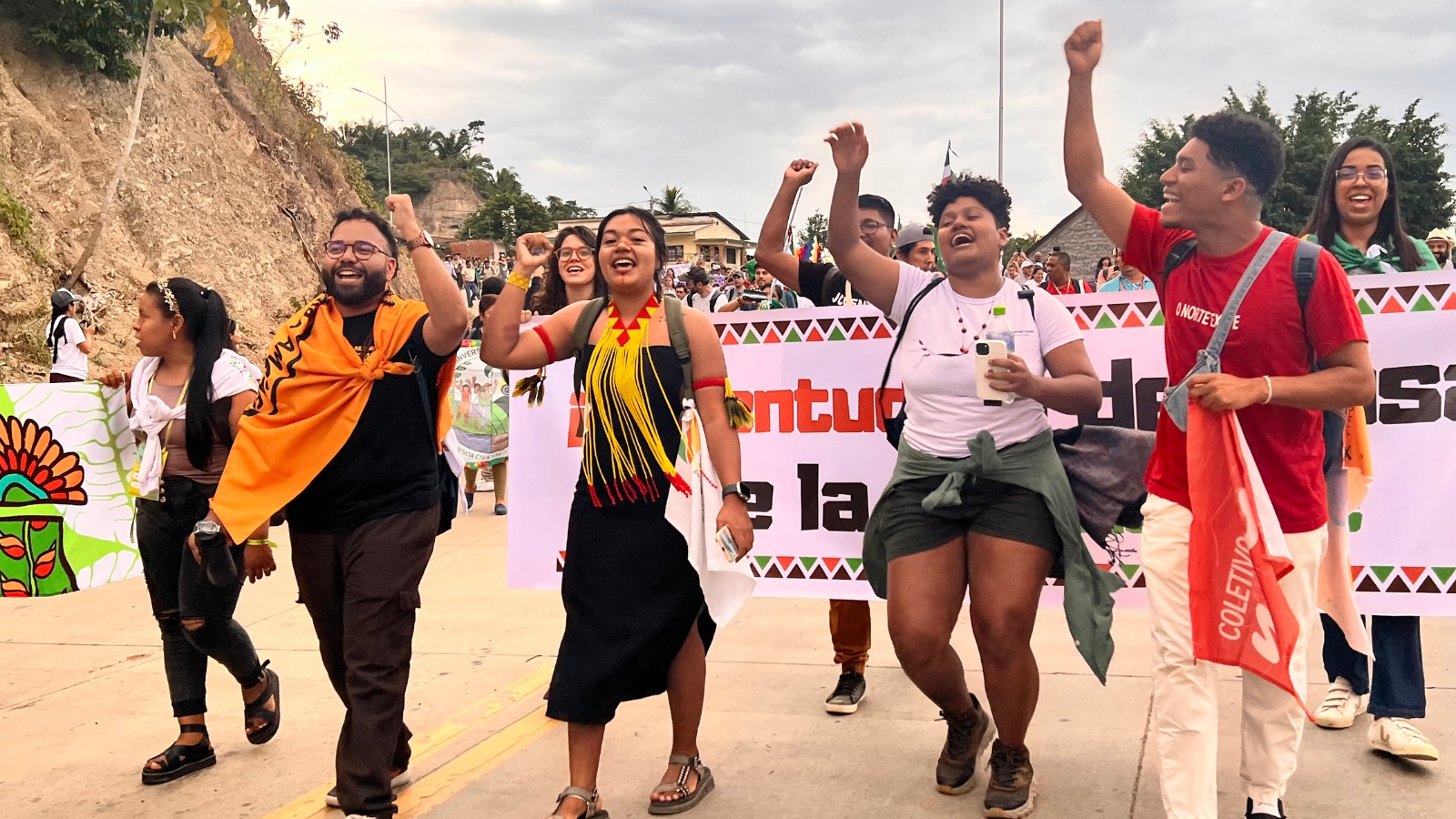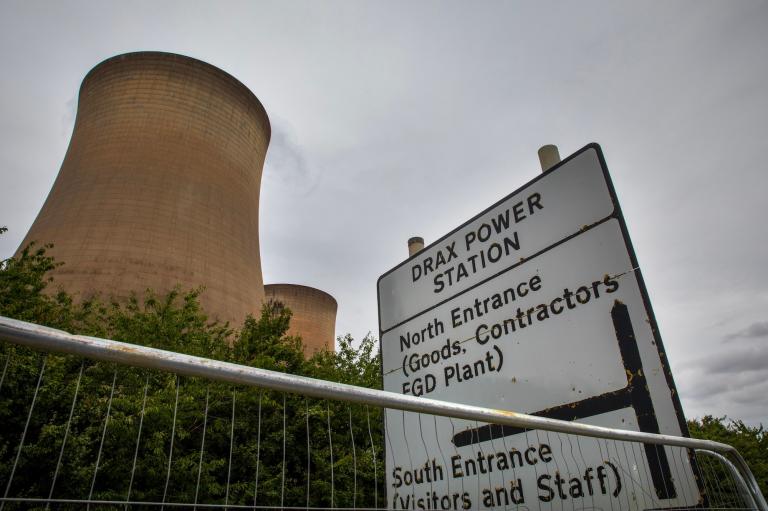Imagine oil workers appearing in your backyard and drilling without warning. Think of constant noise, noxious odors, and routine spills that contaminate your air and water. Then consider all this lasting for decades, with no end in sight and the wealth from the oil sales flowing to people in far-off places.
That is a rough picture of what Ecuador’s Indigenous Waorani people have been living with since the 1970s, when U.S. oil company Texaco arrived and joined a campaign of American missionaries to force contact on families and remove them to evangelical encampments.
As oil operations expanded, so too did the nation’s gross domestic product. Crude has powered the economy ever since. Resistance to the industry’s growth was long seen as an impediment to national progress.
But one year ago, Ecuadorians did something extraordinary. In a nationwide referendum, nearly 59 percent of voters chose to leave billions of dollars worth of heavy crude oil in the ground.
The ballot measure asked voters whether they wanted to stop operations in three oil fields located inside Yasuni National Park, a part of the Amazon rainforest so biodiverse that there are more species of trees located in one square mile of it than in all of North America. The Ishpingo, Tambococha, and Tiputini (ITT) fields also encompass the territories of uncontacted and recently contacted Waorani families.
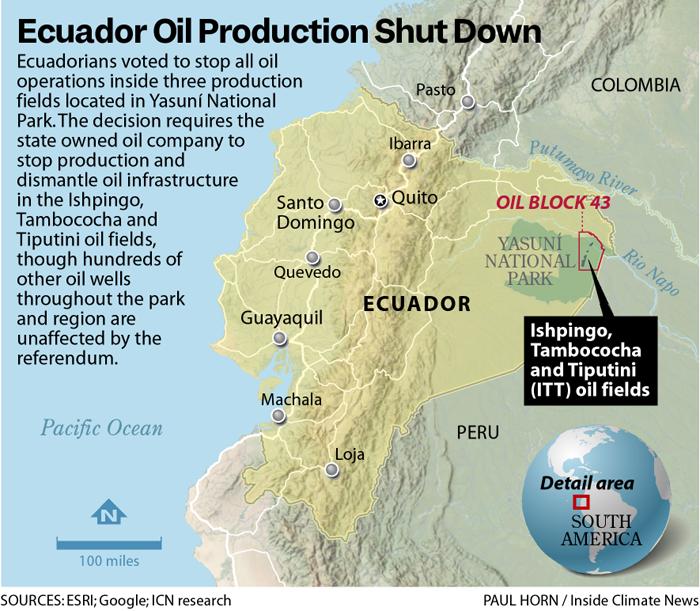
Referendums, a form of direct democracy, have long been used in Ecuador. Most have been top-down, called by politicians seeking legitimacy for proposed policies.
The Yasuni ITT vote was a rare instance of citizens forcing the government’s hand through grassroots organizing and signature gathering. To some, that makes the ITT referendum all the more legitimate and why many perceive compliance with the vote as a high-stakes moment for Ecuadorian democracy.
This month, the government will pass a deadline, imposed by the nation’s top court, to end oil operations in the ITT fields and remediate the area as the referendum requires.
While Ecuadorian president Daniel Noboa appears to have halted planned drilling expansions there, it’s not clear that the government will fully obey the Constitutional Court’s ruling.
Noboa pledged to do so during his presidential campaign last year. But in a January television interview, Noboa suggested that the government may delay phasing out operations in the ITT fields to finance its fight against growing drug-related violence.
Today, the state oil company Petroecuador continues to extract and pipe about 55,000 barrels of oil per day from that area.
Ecuadorian embassies in New York City and Washington, D.C., did not respond to requests for comment or emailed questions about whether the government was taking steps to comply with the referendum.
The situation has created tensions both within and outside Ecuador.
On the ground in Yasuni, where the oil industry has historically trampled on Indigenous peoples’ rights, individual communities and organizations are planning to challenge the government through new court actions and other forms of resistance and protest.
Outside of Ecuador, the outcome will shed light on whether direct democracy is a viable tool to stop extractive projects with outsized harmful impacts. Communities affected by fossil fuel, mining, and agriculture projects in developing countries have long struggled to defend their land rights and the right to a healthy environment. Ecuador’s ITT referendum offered them a beacon of hope as other governments roll out new plans for fossil fuel extraction and mining projects linked to renewable energy technologies.
Noncompliance or excessive delay with the ITT referendum results could chill enthusiasm for similar direct democracy initiatives in the future, according to David Altman, a political scientist at the Pontificia Universidad Católica in Chile.
“If the government keeps extracting oil from Yasuni, the next time someone comes up with a nice idea for a popular initiative, some people will say, ‘What’s the point?’” Altman said. “This frustration could become a frustration toward democracy itself, and that is extremely dangerous.”
Ecuador’s president: ‘We are at war‘
Behind Noboa’s apparent pivot away from his campaign promise to end ITT production is an explosion of crime in the once-tranquil nation.
Until a few years ago Ecuador was, unlike its neighbors Peru and Colombia, largely free from drug-related violence. But from 2022 to 2023, Ecuador’s murder rate soared, making it one of South America’s most violent countries. The escalating brutality reared its head during last year’s snap presidential and congressional elections. At an October campaign event in Quito, gunmen assassinated Ecuadorian presidential candidate Fernando Villavicencio, a former journalist who had spoken out about corruption. And earlier this year, violence in the nation of 18 million people again made headlines when masked gunmen took a journalist hostage on live television.
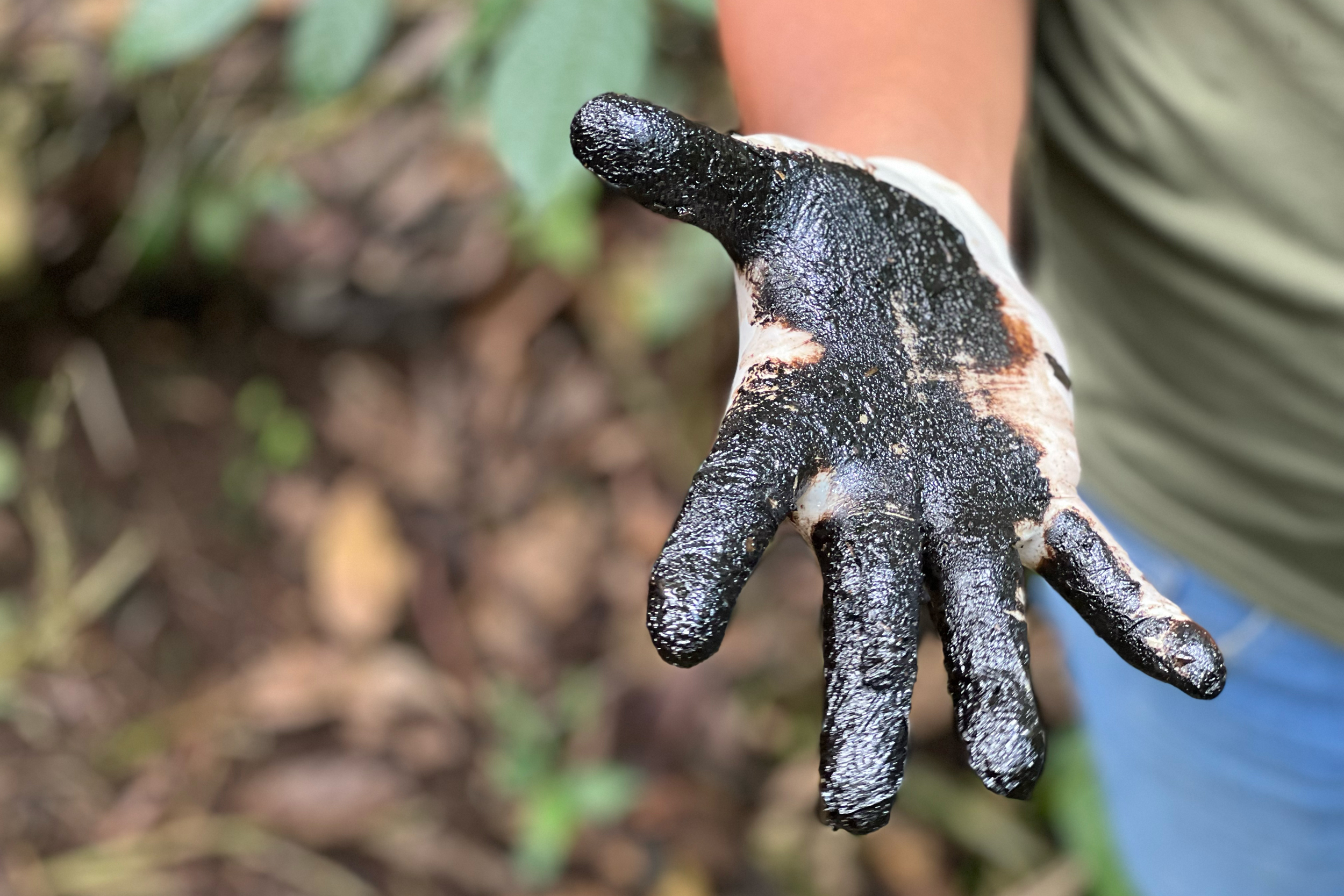
Katie Surma/Inside Climate News
“We are at war,” Noboa said in an interview after the hostage taking.
In April, the president called his own referendum, this time focused on security measures like allowing the military to work with police and increasing some prison sentences. Voters approved the proposals by wide margins.
Funding those and other police activities, Noboa has argued, will require a bump in income and closing the ITT fields would move the national balance sheet in the wrong direction. Ending production in the three fields would cost the country just under $14 billion over the next two decades, according to Petroecuador.
Without that income to fight gangs, Noboa said, Ecuador would “lose the country.”
‘Yes to life‘
But a broad coalition of Indigenous peoples, environmentalists, and activists are challenging the government’s narrative that fighting crime necessitates continued oil extraction in the ITT fields.
They say Noboa’s business-friendly administration is using the drug war as an excuse to delay the phaseout of a declining industry. The nation’s oil production has slumped from its 2014 peak of 557,000 barrels per day to 475,000 in 2023. The ITT fields comprise about 12 percent of that total. Advocates also argue the government has other ways to fund Noboa’s priorities, such as through progressive taxation, combating illicit financial flows and budget cuts.
More broadly, those favoring an end to oil production cast the fight over the ITT fields as a battle for the soul of the country and its future.
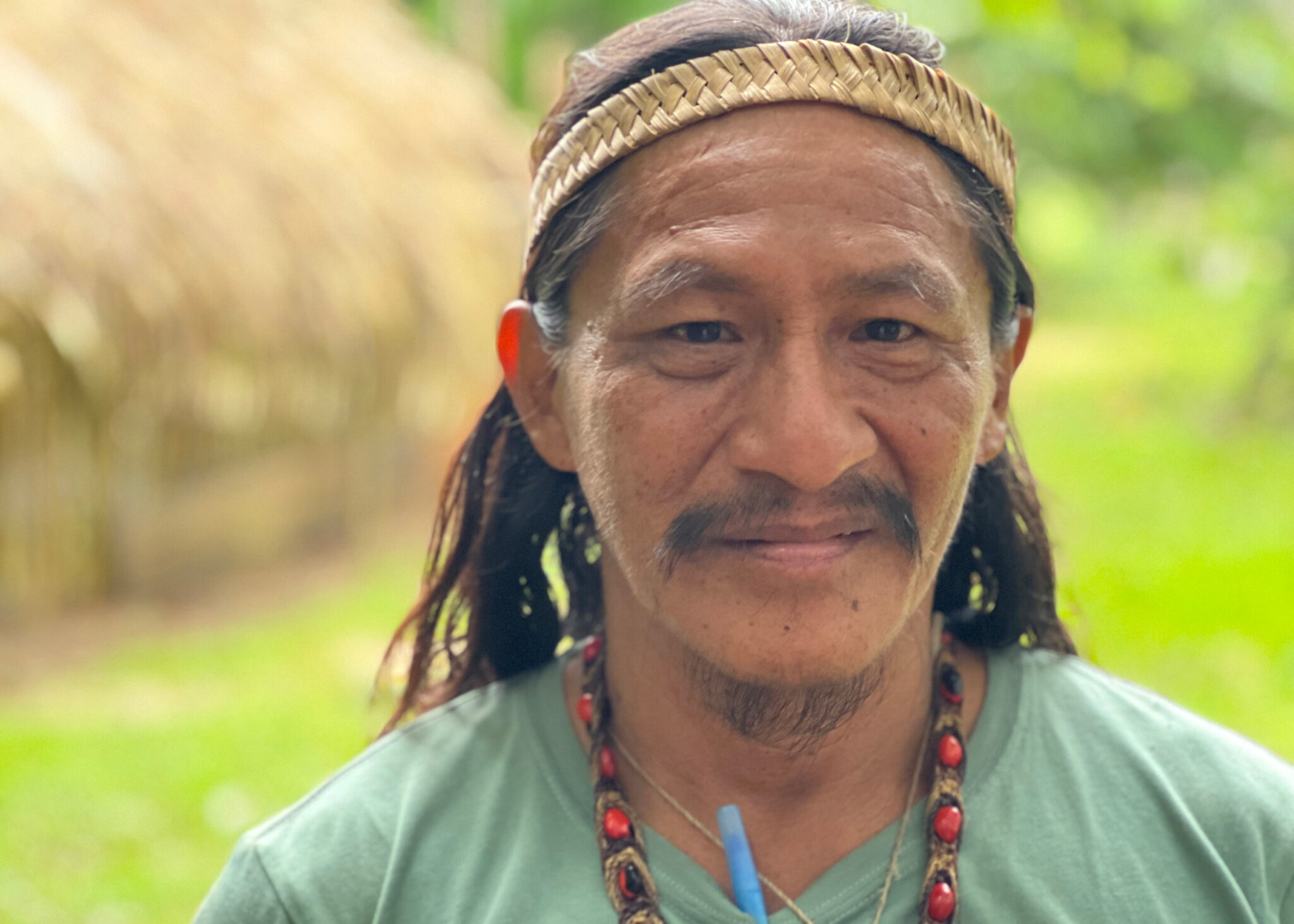
Katie Surma/Inside Climate News
Esperanza Martinez, a co-founder of the nonprofit Acción Ecológica, said the outcome of the ITT referendum was in large part due to Ecuadorians’ weariness with persistent corruption in the country’s oil industry. Also playing a part was a decentralized advocacy campaign and an increasingly powerful and well-organized Indigenous movement. Advocates promoted the ITT vote as a way of recognizing that environmental stewardship is a cornerstone of Ecuadorian nationality.
Straddling the equator and encompassing the Galapagos Islands in the Pacific, the snow-capped Andes and the Amazon rainforest, Ecuador is one of the most biologically diverse places in the world. It is home to countless endangered and rare animals, like the spectacled bear and the giant otter, and some species found nowhere else on Earth, like the marine iguana. In 2008, voters moved to codify the highest form of legal protection for nature when they enacted a new Constitution packed with environmental rights, including a provision recognizing that nature itself has a right to exist.
The ITT referendum, Martinez said, reflects that heritage and “was about saying yes to life, yes to Yasuni, and yes to care of nature.”
Demands for legal guarantees
The process of forced contact and land theft thrust upon Waorani families over the past several decades has not ended.
They have continued to lose territory to expanding oil operations and associated logging, colonization and some environmental protection efforts. In 1979, Yasuni National Park was imposed on top of Waorani peoples’ territories without consultation or consent. The government subsequently greenlit oil operations throughout the park, which is a United Nations-designated biosphere reserve.
Until recently, the government appeared to be pushing ahead with plans to expand operations in the ITT fields by adding eight new platforms, for a total of about 280 new wells, according to Petroecuador’s environmental impact statements.
“The plans for expansion are huge,” said Judith Kimerling, an American lawyer who reviewed the environmental impact statement.
Kimerling works with a Waorani community known as the Baihuaeri of Bameno. Their territory overlaps with the Ishpingo field, the most southern of the ITT trio. The new platforms Petroecuador had planned to install run right to the border of the “Intangible Zone,” a Delaware-sized patch of rainforest off limits to all extractive activity because of the presence of uncontacted Waorani families, known formally as “peoples living in voluntary isolation.”
Several recently contacted Waorani families, including the Baihuaeri, also live inside the Intangible Zone or have territories that intersect with it.
It’s unclear why the government has halted its Ishpingo expansion plans, but Kimerling suggested it could be because of a pending court case.
Penti Baihua, a traditional leader of the Baihuaeri of Bameno, said he’s concerned that the government will renew operations in the planned Ishpingo expansion.
“I want a legal document that guarantees they won’t come back,” he said.
Baihua is also worried about what academics call the balloon effect: When operations are banned in one area, they are moved elsewhere. He said the three uncontacted Waorani groups are known to inhabit or travel through multiple oil blocks where operations are ongoing or could expand — Oil Block 43, which houses the ITT fields, as well as several blocks beyond that area.
In the fall of 2022, Baihua testified before the Inter-American Court of Human Rights about these concerns. The case, the Tagaeri and Taromenane Indigenous Peoples v. Ecuador, has put a spotlight on Ecuador’s history of prioritizing the growth of its oil industry over the rights of Indigenous peoples.
A ruling in that case is expected to come down before the end of the year, when the term of some judges ends. If the judges decide that Ecuador has violated the rights of uncontacted Waorani people and families, they could order Ecuador to take measures to repair those harms and prevent new ones, such as by halting oil production.
Other unfolding legal and political actions will have a bearing on the future of the Yasuni region.
The Baihuaeri have been organizing communities living in and around the Intangible Zone to agree on ways to stop oil expansion.
Separately, NAWE, a Waorani organization, is hosting a summit in Puyo, Ecuador, from August 28 to 30 aimed at producing a strategy to push the Ecuadorian government toward dismantling ITT operations.
Juan Bay, the president of NAWE, said the organization expects to host 300 people from across South America. His organization plans to file a complaint with the Constitutional Court in the coming weeks to force compliance with the referendum and to ask that NAWE be given a seat on the governmental committee tasked with overseeing compliance with the ITT referendum. That committee, established in May, is composed of governmental officials, including the head of Petroecuador, without Indigenous representation. It’s unclear what steps the committee has taken since its formation.
“We should be on the front lines of making decisions about our territories and what happens in our homes,” Bay said.
On Tuesday, a group of U.N. human rights experts released a statement calling on the Ecuadorian government to implement the ITT referendum.
“Any delay or deviation from the popular consultation’s mandate risks undermining environmental protection and climate action efforts, the integrity of Ecuador’s democratic processes, and threatening human rights,” the statement said.
Previously, human rights experts have called on the international community to provide Ecuador with debt relief and access to concessional financing.
Indigenous peoples living in Ecuador’s oil-producing regions have some of the highest poverty rates in the country and lack access to basic services like electricity, education, and running water, according to the U.N.
The United States has historically been, and currently is, the biggest purchaser of Ecuadorian crude oil.
Update: After this article was published, the Ecuadorian government announced plans to cap and close 246 oil wells in the Ishpingo, Tambococha, and Tiputini (ITT) fields beginning on August 30, 2024. That phase-out process will last until December 31, 2029. The government expects that removing other infrastructure, such as well pads, and remediating environmental damage will last through August 31, 2032.

